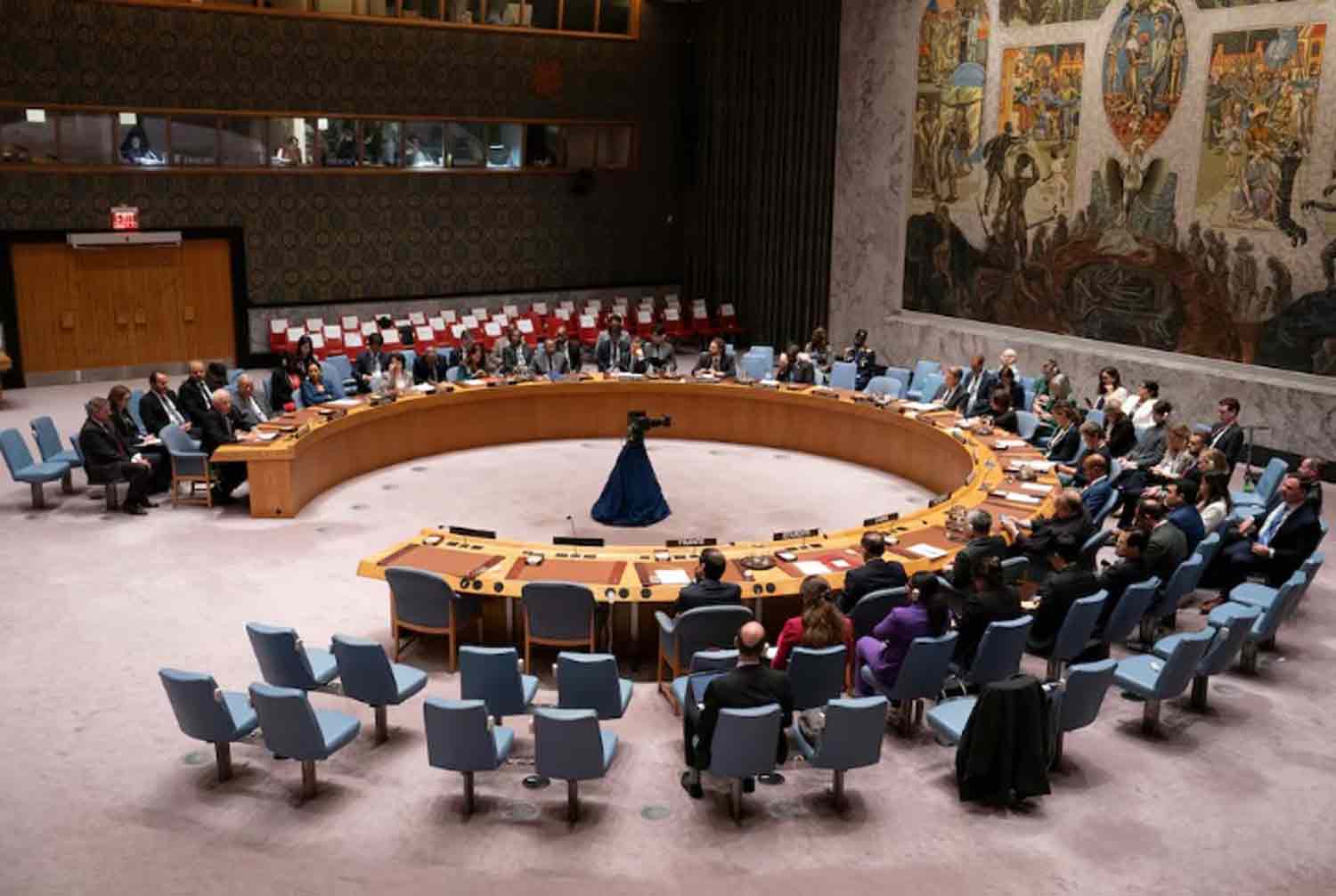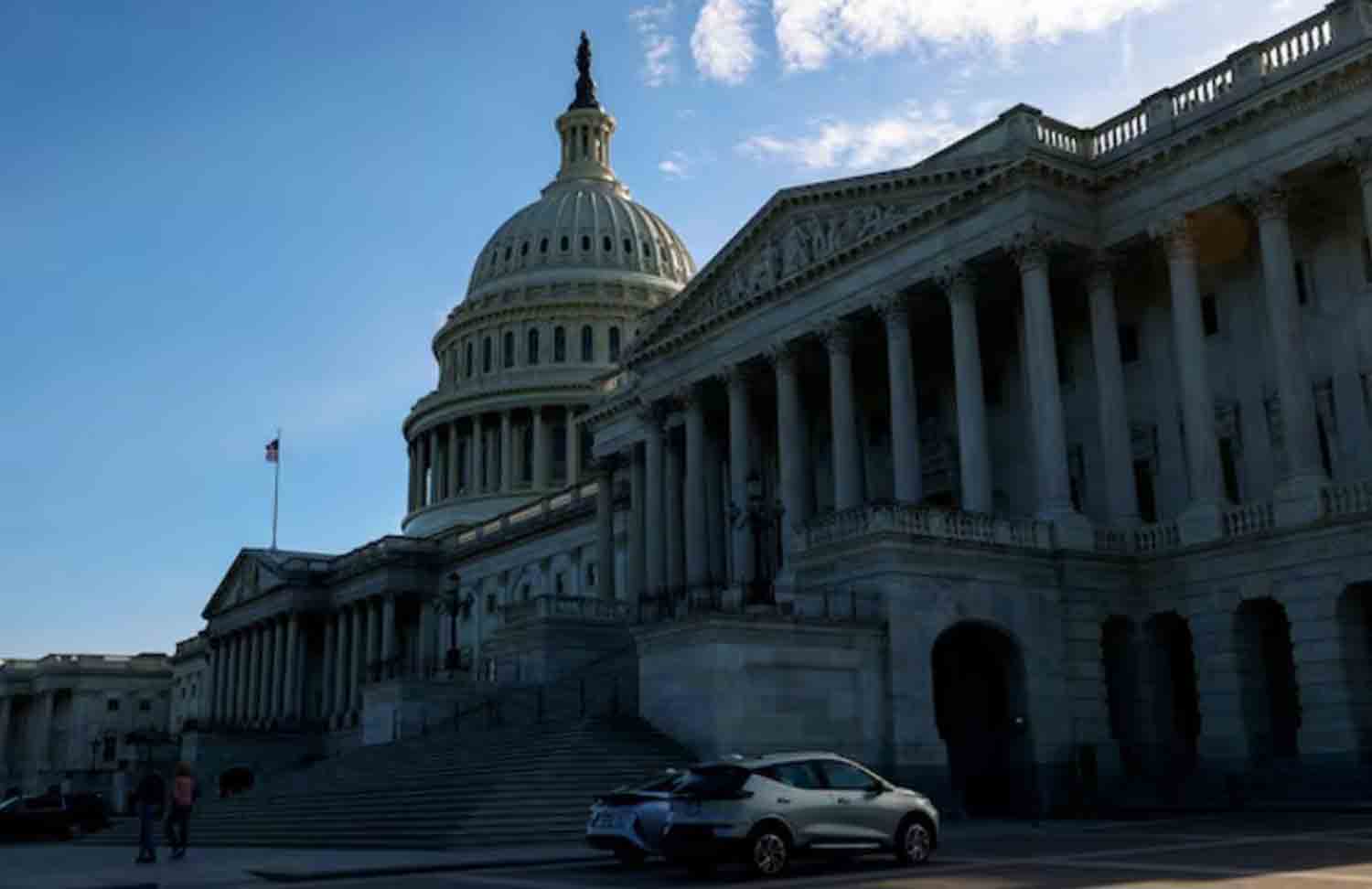The United States exercised its veto power on Wednesday against a U.N. Security Council resolution proposing a ceasefire in Gaza, prompting criticism of the Biden administration for obstructing international efforts to end Israel’s conflict with Hamas.
The resolution, introduced by ten non-permanent members of the 15-member council, called for an “immediate, unconditional, and permanent ceasefire” in the ongoing 13-month conflict and included a separate demand for the release of hostages.
The U.S. was the sole nation to vote against the resolution, utilizing its veto as a permanent member of the council.
Robert Wood, the deputy U.S. ambassador to the U.N., stated that the U.S. would only endorse a resolution that explicitly includes the immediate release of hostages as a condition of any ceasefire.
“A sustainable resolution to the conflict must be accompanied by the release of hostages. These two critical objectives are fundamentally interconnected. This resolution failed to recognize that necessity, which is why the United States could not lend its support,” he explained.
Wood indicated that the U.S. had aimed for a compromise; however, the wording of the proposed resolution would have conveyed a “dangerous message” to the Palestinian militant group Hamas, suggesting that “there’s no need to return to the negotiating table.”
Israel’s military operations in Gaza have resulted in nearly 44,000 fatalities and have displaced almost the entire population of the enclave at least once. This campaign was initiated following an attack by Hamas-led fighters on October 7, 2023, which resulted in the deaths of 1,200 individuals and the abduction of over 250 hostages in Israel.
The U.S. faced significant criticism for obstructing the resolution introduced by the council’s ten elected members: Algeria, Ecuador, Guyana, Japan, Malta, Mozambique, South Korea, Sierra Leone, Slovenia, and Switzerland.
Malta’s U.N. Ambassador, Vanessa Frazier, expressed regret that the council had once again failed to fulfill its duty to maintain international peace and security due to the veto, noting that the resolution’s text “was by no means a maximalist one.”
“It represented the bare minimum of what is needed to begin to address the desperate situation on the ground,” she stated. Food security experts have raised alarms about the imminent threat of famine facing Gaza’s 2.3 million residents.
U.S. President Joe Biden, who will leave office on January 20, has provided strong diplomatic support to Israel and continued military assistance for the conflict, while attempting, without success, to negotiate a ceasefire that would facilitate the release of hostages in exchange for Palestinians detained by Israel.
After previously blocking resolutions concerning Gaza, Washington abstained from a vote in March that allowed a resolution demanding an immediate ceasefire to pass. A senior U.S. official, who spoke to reporters on the condition of anonymity prior to Wednesday’s vote, mentioned that Britain had proposed new language that the U.S. would have endorsed as a compromise, but this was rejected by the elected members.
Some members appeared more focused on securing a U.S. veto than on reaching a compromise regarding the resolution, according to an official who accused U.S. rivals Russia and China of fostering this stance.
France’s ambassador, Nicolas de Riviere, stated that the resolution dismissed by the U.S. “very firmly” called for the release of hostages. “France still has two hostages in Gaza, and we deeply regret that the Security Council was unable to articulate this demand,” he remarked.
China’s U.N. ambassador, Fu Cong, noted that each time the United States has used its veto to shield Israel, the death toll in Gaza has continued to rise. “How many more lives must be lost before they awaken from their false slumber?” he questioned. “Insisting on preconditions for a ceasefire effectively grants permission to prolong the conflict and endorses the ongoing violence.”
Israel’s U.N. ambassador, Danny Danon, asserted prior to the vote that the proposed text was not a resolution aimed at peace but rather “a resolution for appeasement” of Hamas. “History will remember who supported the hostages and who turned their backs on them,” Danon stated.
Discover more from Defence Talks | Defense News Hub, Military Updates, Security Insights
Subscribe to get the latest posts sent to your email.





